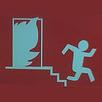|
Larry Mahnken and SG's | ||
|
| Replacement Level Yankees Weblog |

|
|
"Hey, it's free!" | ||
|
|
|
Larry Mahnken and SG's | ||
|
| Replacement Level Yankees Weblog |

|
|
"Hey, it's free!" | ||
|
|
|
Featuring: Larry Mahnken SG sjohnny TVerik Sean McNally Fabian McNally John Brattain This is an awesome FREE site, where you can win money and gift certificates with no skill involved! If you're bored, I HIGHLY recommend checking it out!
 
The New York Yankees Vintage World Series Films DVD Set, available from A&E. Yankees Tickets World Series Tickets MLB All Star Tickets NFL Tickets Purchase your Onlineseats.com is your #1 source for MLB tickets, NY Mets Tickets, Cubs Tickets, Yankees Tickets, Red Sox Tickets, Giants Tickets, Astros Tickets, Angels Tickets, Phillies Tickets.
Buy all your MLB Tickets,
Laser Keyboard Brazil Flowers TickCo.com for premium New York Yankees Tickets Boston Red Sox Tickets Chicago white Sox Tickets A's Tickets Angels Tickets New York Mets Tickets St Louis Cardinals Tickets Cubs Tickets Dodgers Tickets "I'm not a pessimist, I'm an optimist. Things are really worse than I say they are." - Steve South

January 2001 April 2003 May 2003 June 2003 July 2003 August 2003 September 2003 October 2003 November 2003 December 2003 January 2004 February 2004 March 2004 April 2004 May 2004 June 2004 July 2004 August 2004 September 2004 October 2004 November 2004 December 2004 January 2005 February 2005 March 2005 April 2005 May 2005 June 2005 July 2005 August 2005 September 2005 October 2005 November 2005 December 2005 January 2006 February 2006 March 2006 April 2006 May 2006 June 2006 July 2006 August 2006 September 2006 October 2006 November 2006 December 2006 January 2007 February 2007 March 2007 April 2007 May 2007 LINKS Yankees Sites and Columnists Nomaas.org General Baseball Sites & Columnists At Home Plate Rotoauthority.com The Book Blog - Playing the Percentages in Baseball(Tango, MGL, Dolphin) Yankees Blogs Almost Perfect Baby Bombers Baseball Mania Bronx Banter Bugs and Cranks Canyon of Heroes Dugout News Eephus Pitch Here Comes Number 27 High and Tight Lohud Yankees Blog No Sense Worrying Pinstripe Potentials River Ave. Blues Soft Hands The Stat Boy of the Empire Was Watching Yankees Chick Yankees Fans in Foreign Lands Yanks Blog Other Team Blogs Anaheim Angels All the Way Bucco Blog San Francisco Giants Blog Viva El Birdos Look what people have to say about Larry Mahnken's commentary! "Larry, can you be any more of a Yankee apologist?.... Just look past your Yankee myopia and try some objectivity." "Mr. Mahnken is enlightened."
"Wow, Larry. You've produced 25% of the comments on this thread and
said nothing meaningful. That's impressive, even for you."
"After reading all your postings and daily weblog...I believe you have truly become the Phil Pepe of this generation. Now this is not necessarily a good thing."
"you blog sucks, it reeds as it was written by the queer son of mike lupica and roids clemens. i could write a better column by letting a monkey fuk a typewriter. i dont need no 181 million dollar team to write a blog fukkk the spankeees"
"i think his followers have a different sexual preference than most men"
"Boring and predictable."
"Are you the biggest idiot ever?"
"I'm not qualified to write for online media, let alone mainstream
media."
This site is best viewed with a monitor.
|
Disclaimer: If you think this is the official website of the New York Yankees, you're an idiot. Go away. April 30, 2006
2 out of 3 ain't bad, again by SG
The Yankees concluded their nine game homestand at 6-3 this afternoon with an exciting 4-1 win over Toronto, taking their third straight home series in this homestand and fourth overall, despite losing the first game on Friday night. Mike Mussina continued to pitch extremely well, moving to 4-1 and lowering his ERA to 2.31. He hit 92 mph in the sixth inning, and really did a wonderful job of moving the ball around against a very good-hitting Blue Jays team. I hope Randy Johnson took notes.
April 28, 2006
2 out of 3 ain't bad by SG
After what was probably the most frustrating loss of the year, Shawn Chacon pitched 6.1 effective innings and the Yankees finally remembered that they were facing Mark Hendrickson and scored 3 unearned runs in the bottom of the sixth inning to beat Tampa Bay 4-1. Derek Jeter continues to hit better than he ever has, going 3-3 with a BB, and is now hitting .408/.516/.684. His BB and an error by Russell Branyan set up the Yankee rally. I won't say anything more about Jeter because I don't want to be accused of bashing.
April 26, 2006
by SG
In 1999 at the age of 25, Derek Jeter put forth an incredible season, hitting .349/.438/.552 and ending up at an OPS+ of 161. Defensive metrics disagree on how good or bad he was defensively, but his offensive value made him an MVP candidate. If Jeter was that good at 25, how good would he be as he peaked?
April 25, 2006
Beating Tampa by SG
Last year, the Yankees lost the season series to the Tampa
April 23, 2006
Randy Johnson Doesn't Stink by SG
After crapping the bed against Toronto last Tuesday, Randy Johnson rebounded nicely today, allowing just 3 hits (all to Miguel Tejada) over eight strong innings, walking just one, fanning five, and needing just 94 pitches. Shockingly, he was able to do this despite pitching to Jorge Posada instead of Kelly Stinnett. I think we're seeing the 42 year old Randy Johnson, who is not overpowering, but will usually pitch well, with an occassional disaster start. As long as he can pitch a quality start 3 out 4 times, I think he'll be doing his job. With Johnson, it's usually pretty obvious when he doesn't have it, so I think a quick hook in those instances will save pitches on his arm, and also give the Yankees a better chance to win those games.
April 21, 2006
Small Sample Size Theater, Part 1 by SG
I've been playing around with some automated number crunching, which allows me to present some Yankee Sabermetric stats through 14 games. And yes, I know it's too early to do this.
April 20, 2006
Good Moose by SG
Anyone who's followed the Yankees closely over the last few seasons is aware of the Good Moose/Bad Moose phenomenon. A nagging elbow injury and the ravages of time have morphed one of the most consistent pitchers in the American League since 1992 into an inconsistent pitcher who will show flashes of brilliance mixed with meltdowns of Heredian proportion. So far this season, it's been all Good Moose.
April 18, 2006
OMG! Teh 6-6! by Larry Mahnken
Here's some meaningless data:
April 17, 2006
Pythagorean Records and Forecasted Standings by SG
Despite the Yankees' .500 record through 12 games, the team has played quite well. To put their start in perspective, I decided to undergo a little exercise similar to Baseball Prospectus's Adjusted Standings Report, which looks at the components a team has put up to give them a record based on how they have actually performed on the basis of their runs scored and runs allowed.
April 16, 2006
Wang-tastic by SG
After two disappointing games, the Yankees did what they apparently need to do to win this season, by scoring nine runs, powered by two HRs by Jason Giambi, and an outstanding pitching performance by Chien-Ming Wang.
April 15, 2006
Feast or Famine by SG
Unfortunately for the Yankees, their series with the Royals had to end eventually. Scott Baker, Juan Rincon, and Jesse Crain held the Yankees to four hits and one run and the Yankees wasted a good start by Mike Mussina in falling to the Twins, 5-1. Thanks to loyal reader cutter for the title suggestion, which is something that will bear watching all season. Will the Yankees pound bad pitching and struggle more than expected against decent pitching?
April 14, 2006
Replacement Level Game Chatter by Larry Mahnken
The Yanks were unbeatable vs. the Twins a couple of years back, but they had some struggles with them early last year. This will be far from an easy series.
April 13, 2006
Replacement Level Game Chatter by Larry Mahnken
Yanks are 16-10 on my birthday, and Ron Guidry won his first major league game on the day I was born.
Back to .500 by Larry Mahnken
If you're inclined to overreact to a week and a half, you'll do so for the first week and a half of the Yankees' season. They're .500, but they could be 8-0. They had to come back late against the Royals on Tuesday, but they still won. They blew leads out on the West coast, but those were against tough teams on the road.
A correction -- but not a retraction by Larry Mahnken
When researching Derek Jeter's clutch homers, it was pointed out by a reader that I'd missed one.
April 12, 2006
Replacement Level Game Chatter by Larry Mahnken
When I started this blog pretty much everyone who read it was at BTF, but I guess some of you hang out here for commenting now. Here's a special thread for that.
Derek Jeter and Clutch Homers by Larry Mahnken
April 11, 2006
Opening Day in the Bronx by SG
April 10, 2006
Win Contributions by Larry Mahnken
The last thing the world needs is a new offensive statistic, but I wanted to share something I've been playing around with the last couple of days. It's not meant to be predictive, it's just meant to measure value in a different way than other statistics.
April 9, 2006
What? Me Worry? by SG
After a four game losing streak, today's 10-1 win over the Angels was just what I needed.
April 7, 2006
The Unassailable Derek Jeter by SG
As I stayed up rwatching the Yankees blow their second consecutive game to Oakland that they could have or should have won, the one thing that sticks in my mind more than the result of the game was the infuriating Michael Kay and his idiotic comment when Derek Jeter fielded a tailor-made double play ball off his forehead and ended up costing Chien-Ming Wang 3 runs and his rhythm.
April 4, 2006
15 Down, 985 To Go by Larry Mahnken
Lots of people have speculated on a 1000-run season for the Yankees this year, but I don't think we should count on that. 900 runs looks like a possibiltiy, but a grand? Well, that'll take some doing.
April 3, 2006
YAY! OPENING DAY! by Larry Mahnken
OK, so it might rain, but if it doesn't, today is the first day of the 2006 season.
Opening Day? by SG
In about 14 hrs, the Yankees are scheduled to open the 2006 season in Oakland. Unfortunately, there is a 90% chance of rain in the forecast, so they may not be able to play. If they do, Joe Torre has announced his lineup, which has already aggravated me.
| ||||||||||